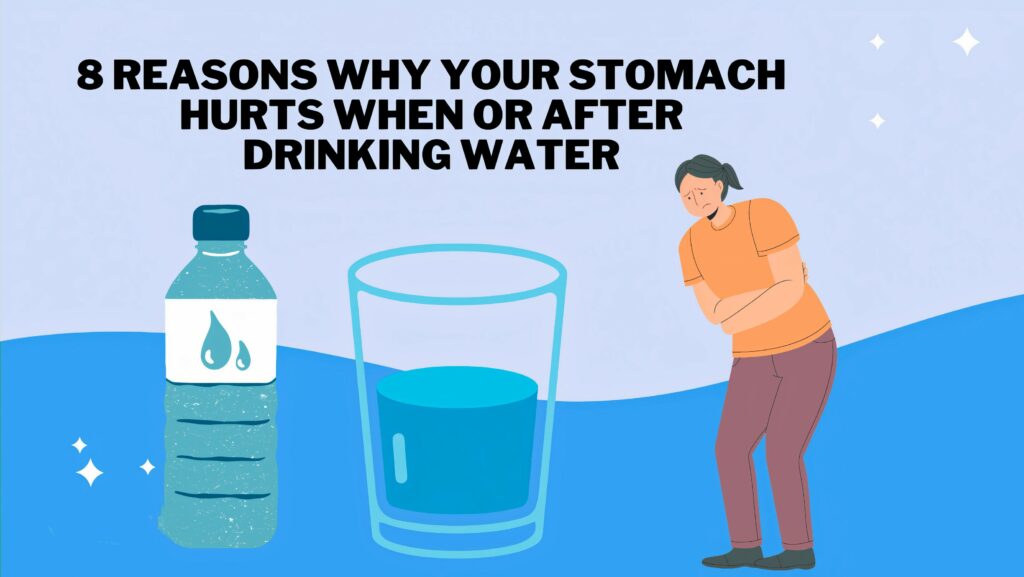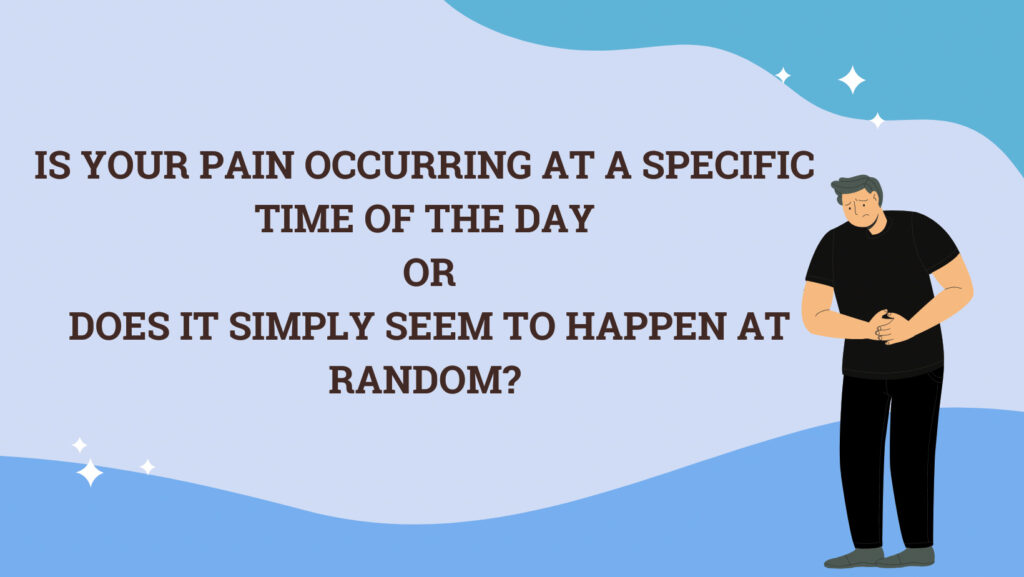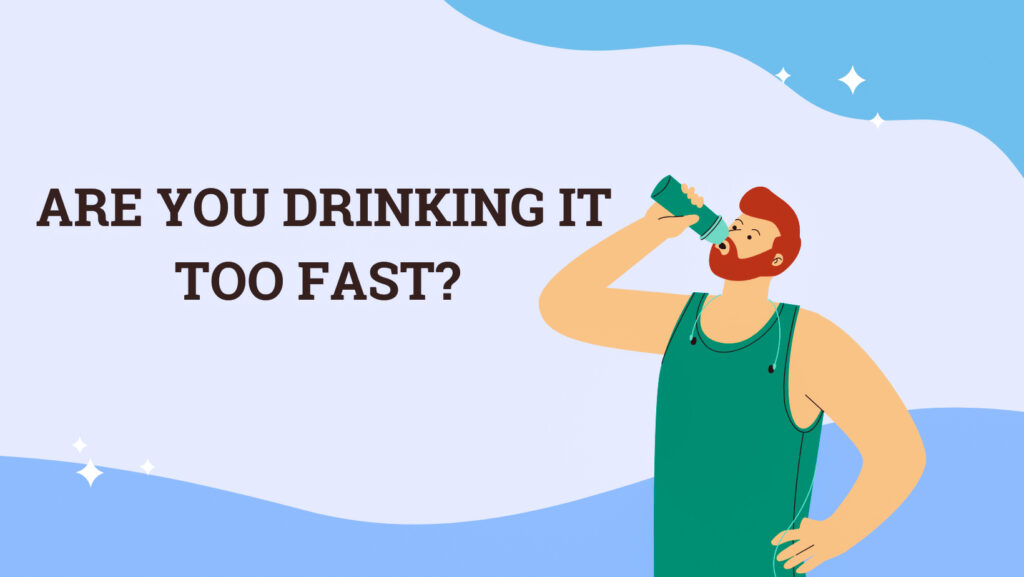
Stomach pain can be a debilitating and confusing experience. For many people, drinking water can be a trigger for stomach pains. Understanding why this occurs can help to alleviate the symptoms and provide a sense of relief. Having stomach pain after drinking water can be a warning sign for underlying conditions and it is important to be aware of the potential causes.
This article will explore 8 Reasons Why Your Stomach Hurts When or After Drinking Water. It will discuss the various causes of this discomfort, from digestive issues to medical conditions, and provide tips on how to manage the pain.
By understanding the potential causes and knowing when to seek medical advice, sufferers can find relief from their symptoms. So if you’re asking yourself “why does my stomach hurt when I drink water”, this article will provide some answers and help you on your way to feeling better.
Is your pain occurring at a specific time of the day or does it simply seem to happen at random?

1. Shock in the morning
Starting your day with a glass of water is a commonly recommended healthy habit, but for some people, it can lead to stomach pain. If you’re experiencing a shock to your stomach in the morning after drinking water, it could be because your body is craving food instead of hydration.
The sudden influx of liquid in an empty stomach can be jarring and lead to discomfort. To determine if this is the cause of your pain, try adjusting your morning routine.
Consider pushing back your breakfast by a couple of hours, and drinking your first glass of water closer to mealtime. If you’re still experiencing pain after making these changes, it could be that your body simply doesn’t respond well to hydration before eating.
It’s important to listen to your body and make adjustments because by paying attention to the timing and circumstances of your discomfort, you can hopefully find a solution that works for you and find the answer to “Why does my stomach hurt when I drink water?”
2. Is cold water causing it?
If you’re experiencing stomach pain after drinking a cold glass of water, the temperature could be the culprit. Consuming liquids that are significantly colder than your body’s normal temperature of 98 degrees can be a shock to the system, leading to discomfort. If you find that your pain is only triggered by cold water, consider adjusting the temperature to see if it makes a difference.
Experiment with adding fewer ice cubes or drinking water that is closer to room temperature to determine what temperature your body can tolerate without discomfort. It’s possible that your body may not be able to handle the sudden change in temperature, resulting in pain.
The question of “Why does my stomach hurt when I drink water?” may have a simple answer: the temperature of the liquid.
3. Are you drinking it too fast?

If you find that drinking water causes stomach pain, one factor to consider is the pace at which you’re drinking it. You may be tempted to chug a large amount of water to quench your thirst, but this could be the root cause of your discomfort.
Drinking water too quickly can lead to a fluid overload, causing your stomach to expand and leading to pain. Instead, try drinking smaller amounts of water at a slower pace and allowing your body to adjust.
This will also help you avoid drinking too much water and potentially experiencing hyponatremia, a condition caused by low sodium levels in the body that can result in stomach cramps, weakness, nausea, and other unpleasant symptoms.
It’s important to remember that water is crucial for our survival, but it’s also important to drink it in moderation and maintain the right balance of electrolytes in your body. Many people ask “Why does my stomach hurt when I drink water?” but few of them think that the reason could be as simple as drinking it too fast.
4. Medical reasons
“If you’ve been able to address the issue of stomach pain when drinking water by trying out the methods mentioned earlier, that’s great! But if the pain persists, it’s possible that it could indicate a more serious underlying issue. In this case, it’s important to conduct further investigation to determine the root cause. One such issue that could be contributing to stomach pain is lead poisoning.
The unfortunate reality is that once lead poisoning has occurred, there isn’t much that can be done to reverse the situation. However, early detection is crucial and can help you take the necessary steps to mitigate its impact.
This could include collaborating with your landlord to address the source of the lead poisoning. It’s important to be proactive in addressing the question of ‘’Why does my stomach hurt when I drink water’’ because it is important for your well-being.
5. Lead poisoning
A potential reason for why your stomach hurts when you drink water is due to lead exposure. Unfortunately, lead poisoning is a severe medical condition with adverse effects that worsen the later it’s detected. Many homes in the US still contain lead, and if you haven’t had a professional come and inspect your home with an XRF analyzer, it’s possible that you’ve been inhaling lead particles for a long time. The weathering of old lead paint in the home is the most common source of lead exposure.
The best course of action is to have the lead abated, but if that’s not possible, encapsulating the problematic paint is the second-best option. Lead was widely used in residential paint and plumbing before 1977, but its use was banned. Galvanized steel pipes, common in homes built between the 1930s and 1960s, could release lead over time, but these pipes have since been replaced with copper pipes.
It’s crucial to check both your blood and water for high lead levels if you suspect exposure. Ensuring that your home is lead-free not only protects you but also those living with you, especially young individuals who are at risk of exposure. So, if you are experiencing stomach pain when drinking water, consider if lead exposure could be the root cause.
6. Arsenic contamination
Have you considered that the answer to the question ‘’Why does my stomach hurt when I drink water’’ could be caused by arsenic contamination?
Arsenic contamination is a dangerous issue that affects a wide range of countries globally. If you experience vomiting and abdominal pain after drinking water, this could be a sign of arsenic contamination.
Unfortunately, there are areas in the United States where groundwater contains high levels of inorganic arsenic, posing a significant risk to those who consume it.
Other countries with elevated levels of arsenic in their water supply include Argentina, Bangladesh, China, India, and Mexico. For a comprehensive list of countries with arsenic contamination concerns, it is recommended to check the World Health Organization (WHO). It’s important to note that if you experience abdominal pain when drinking water, it could be caused by arsenic contamination and it’s important to take necessary measures to ensure the safety of your drinking water.
7. Microbial growth and allergic reactions
The human body is complex and can react to various stimuli, including water consumption. One of the reasons that could explain why your stomach hurts when you drink water is due to the growth of microbes or an allergic reaction.
Microbial growth can occur in water that has not been properly treated or stored, leading to the presence of harmful bacteria and other microorganisms that can cause digestive issues and abdominal pain. Additionally, some individuals may have an allergic reaction to certain components found in water, such as chlorine or minerals. This reaction can lead to symptoms such as bloating, cramping, and discomfort in the stomach.
If you are experiencing abdominal discomfort after drinking water, it may be wise to consider the quality of the water you are consuming and if it has been properly treated. You may also want to consider speaking with a healthcare professional to determine if an allergy or intolerance is causing your symptoms.
By addressing the underlying cause, you can alleviate your discomfort and enjoy the many benefits of hydration without any stomach pain. So, if you’re asking yourself “Why does my stomach hurt when I drink water?” it could be due to microbial growth or an allergic reaction, and it’s essential to find out the root cause to treat the problem.
8. Other medical issues
Other potential health concerns might be the cause of your stomach pain. Unfortunately, there is a wide range of medical issues that can lead to stomach discomfort, such as stomach ulcers, inflammation, gastroesophageal reflux disease, irritable bowel syndrome, and more.
While some of these conditions may be improved by adopting a healthier lifestyle and reducing inflammation, such as following a ketogenic diet, it’s crucial to seek medical advice if you suspect that a medical condition is the root cause of your discomfort.
When trying to understand why your stomach hurts when you drink water, it’s important to consider all potential causes, including medical issues. While lifestyle changes may be effective in some cases, the best course of action is to visit a doctor and have a proper evaluation and diagnosis. Only then can you receive the proper treatment and care that you need to alleviate your symptoms and improve your quality of life.
Frequently Ask Questions
Can water give you a stomach ache?
It is possible for water to cause a stomach ache. In fact, there are several factors that may contribute to the development of abdominal discomfort after drinking water. Understanding these potential causes is important for addressing the issue and finding relief.
Why does my stomach hurt so bad after drinking?
Stomach aches after drinking can be a discomforting experience and the cause can be quite diverse. From underlying medical conditions to simply the temperature of the liquid, there could be several factors that contribute to the pain. Check this article to see if you may have been exposed to lead-contaminated water.






